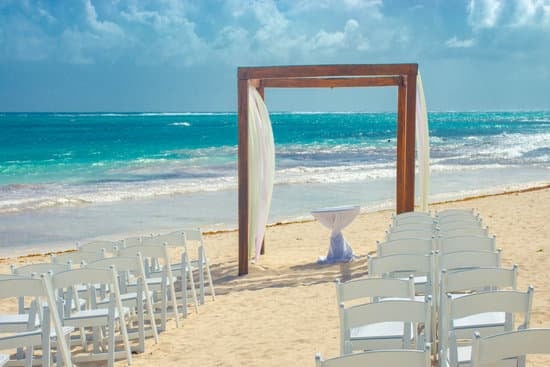Planning a wedding can be an exciting yet daunting task, and one of the most crucial aspects of this process is establishing a good budget for a wedding. It is essential to understand the significance of setting a realistic and manageable budget in order to ensure that your special day is both beautiful and financially responsible.
In this article, we will guide you through the process of creating a wedding budget that reflects your values and financial situation, while still allowing for a memorable celebration.
When it comes to planning a wedding, setting priorities is key. Identifying the elements of your wedding that hold the most importance to you and your partner will help you allocate funds accordingly. By understanding what matters most to you, whether it’s the venue, catering, or attire, you can create a budget that aligns with your vision for the big day.
Researching average costs associated with different aspects of a wedding is also crucial in setting a good budget. From venues and catering to attire and decorations, exploring typical expenses will provide valuable insight into how to allocate funds effectively. By gathering this information, you can make informed decisions when creating your budget, ensuring that each aspect of your wedding is accounted for without overspending.
Setting Your Priorities
When it comes to planning a wedding, setting your priorities is crucial in order to allocate your budget effectively. Every couple has different ideas about what they want their special day to look like, so it’s important to sit down with your partner and have an open and honest conversation about what elements of the wedding are most important to both of you. This will help you make informed decisions about where to allocate the majority of your budget.
One key element to consider is the venue. For some couples, the location and atmosphere of their wedding is top priority, while for others it may be less significant. If you’ve always dreamed of exchanging vows in a specific setting, whether it’s a rustic barn or a romantic beach, then allocating a larger portion of your budget towards the venue may be the right choice for you.
Another important aspect to consider is catering. Are you both food enthusiasts who want to impress your guests with an elaborate menu? Or do you prefer a more laid-back and casual dining experience? Understanding the role that food will play at your wedding will help you determine how much of your budget should be allocated towards catering.
Lastly, attire is another significant factor for many couples. Some may prioritize finding the perfect wedding dress or suit, while others may be more focused on creating unique and personalized looks for their bridal party. Deciding which elements of attire are most important to you and your partner will guide how much of your budget should be dedicated to clothing and accessories.
It’s clear that identifying your priorities is essential when it comes to creating a good budget for a wedding. By understanding what aspects of the wedding are most meaningful to you as a couple, you can allocate funds accordingly and ensure that your special day reflects your values and vision.
| Setting Your Priorities | Examples |
|---|---|
| Venue | Rustic barn or romantic beach |
| Catering | Elaborate menu or casual dining experience |
| Attire | Perfect wedding dress/suit or unique looks for bridal party |
Researching Average Costs
When planning a wedding, one of the most crucial steps is researching the average costs associated with different aspects of the event. This will help you set realistic expectations and create a good budget for a wedding that aligns with your financial situation.
According to recent data, the average cost of a wedding in the United States is around $33,900, with couples typically spending between $25,000 and $35,000. However, these figures can vary significantly depending on factors such as location, number of guests, and personal preferences.
One of the major expenses to consider is the venue. On average, couples spend about $10,500 on their wedding venue. Factors that can influence this cost include the location of the venue, its capacity, and whether it includes additional services such as catering or décor.
Similarly, catering and food expenses typically account for a significant portion of the overall budget. The average cost for catering at a wedding ranges from $4,000 to $6,000 but can be higher or lower based on menu choices and guest count.
Another key aspect to research is attire expenses. This includes not only the cost of the wedding dress and groom’s attire but also alterations and accessories.
The average cost of a wedding dress in the US is approximately $1,600, while alterations can add several hundred dollars to this expense. By understanding these typical costs associated with different elements of a wedding, couples can make informed decisions when creating their budget and ultimately ensure that they have a beautiful and memorable day without overspending.
| Aspect | Average Cost |
|---|---|
| Wedding Venue | $10,500 |
| Catering | $4,000 – $6,000 |
| Wedding Dress | $1,600 |
Creating Your Budget
When creating a budget for your wedding, it’s important to gather all the information you need to allocate funds to each aspect of the event. This will help you ensure that you are spending money wisely and not overspending in certain areas. Here are some steps to take when creating your budget:
- Research the average costs of different elements of a wedding, such as the venue, catering, and attire. This will give you a realistic idea of how much you should be allocating to each aspect.
- Consider your priorities as a couple. What are the most important elements of the wedding for you and your partner? Allocate more funds to these aspects while being willing to compromise on other areas.
- Factor in some flexibility in your budget. Unexpected expenses may arise, so it’s important to have some wiggle room in your allocations.
By using the information gathered from researching average costs and setting priorities, you can create a budget that reflects your values as a couple and ensures that you are spending money where it matters most.
Once you have gathered all the necessary information and allocated funds to each aspect of the wedding, it’s time to create your budget. Here are some tips for creating a solid budget:
- Use a spreadsheet or budgeting tool to keep track of all your expenses and allocations
- Be realistic about what you can afford – don’t over-allocate funds if it will put strain on your finances
- Communicate with all parties involved in the planning process so everyone is on the same page about the budget
Creating a detailed and well-thought-out budget will set you up for success and help ensure that you have a beautiful and memorable wedding day without breaking the bank.
Tips for Saving
When it comes to planning a wedding, one of the biggest concerns for many couples is staying within budget. With the average cost of a wedding continuing to rise, it’s essential to find practical ways to save money without sacrificing the quality of your special day. Fortunately, there are several tips and strategies that can help you cut costs while still creating a memorable and beautiful celebration.
One effective way to save money on your wedding is by considering do-it-yourself (DIY) projects. From creating your own centerpieces and decorations to crafting your invitations or even baking your own wedding cake, DIY projects can significantly reduce expenses while adding a personal touch to your big day. Additionally, enlisting the help of friends and family members who are skilled in areas such as floral arrangements or photography can also provide valuable cost savings.
Another practical way to save on wedding expenses is by choosing an off-peak wedding date. Wedding season typically falls between late spring and early fall, with weekends being the most popular choice for ceremonies.
By opting for a weekday or getting married during the off-season, you may be able to secure significant discounts on venue rentals, catering services, and other vendors. Not only does this allow for potential savings, but it may also provide greater flexibility in terms of availability and options for your event.
In addition to DIY projects and choosing off-peak dates, there are other ways to trim costs without compromising on quality. For example:
- Consider renting attire instead of purchasing
- Opt for a smaller guest list
- Choose a non-traditional venue
By carefully evaluating each aspect of your wedding and exploring various cost-saving measures, you can create a beautiful celebration that aligns with your budget while still reflecting your unique style and preferences.
Hidden Costs
When planning for a wedding, it’s important to be aware of all potential expenses that may not initially come to mind. Whether it’s tipping the vendors or factoring in alterations for your attire, hidden costs can add up quickly and affect your overall budget.
Gratuities for Vendors
One commonly overlooked aspect of wedding budgeting is gratuities for the vendors. It’s customary to tip various service providers, such as caterers, bartenders, hair stylists, and makeup artists. These tips are often a percentage of the total cost or a flat fee per vendor. It’s essential to include these gratuities in your budget from the beginning to avoid any last-minute financial stress.
Attire Alterations
Another hidden cost that couples tend to forget when budgeting for their wedding is the alterations for their attire. Whether it’s a wedding gown, suit, or bridesmaid dresses, alterations are almost always necessary to ensure a perfect fit. These alterations can range from simple hemming to more complex adjustments and can significantly impact your overall budget if not accounted for in advance.
Unexpected Fees at the Venue
Many couples underestimate the additional fees that may arise from their chosen venue. It’s crucial to inquire about any potential extra charges for services such as overtime fees, security deposits, or cleaning fees. By being proactive and clarifying all associated costs with the venue, you can avoid unexpected expenses and adjust your budget accordingly.
By shedding light on these potential hidden expenses and taking them into account when setting a good budget for a wedding, couples can better prepare themselves financially and avoid any unwelcome surprises during the planning process.
Sticking to Your Budget
Once you have set a good budget for a wedding, it is crucial to stick to it in order to avoid going overboard with your spending. This section will provide some valuable strategies for staying on track and avoiding unnecessary expenses throughout the planning process.
Track Your Expenses Regularly
One of the most important strategies for sticking to your wedding budget is to track your expenses regularly. Keep a detailed record of every cost incurred, no matter how small it may seem. By doing so, you can easily identify areas where you may be overspending and make necessary adjustments before it’s too late.
Stay Organized
Organizing your wedding planning process can greatly help in ensuring that you stick to your budget. Create spreadsheets or use budgeting apps to keep track of all your expenses and payments. Having a clear overview of where your money is going will make it easier for you to stay within your set budget.
Avoid Impulse Decisions
It can be tempting to make impulse decisions when planning a wedding, especially when it comes to details such as décor, attire, or entertainment. However, making impulsive choices can quickly lead to overspending.
To avoid this, always consult your budget before making any decisions and take the time to consider all options before committing to any expense. By staying organized and disciplined in tracking expenses and avoiding impulse decisions, you can effectively stick to your budget while still planning the wedding of your dreams.
Reassessing and Adjusting
Planning a wedding can be an exciting yet daunting task, especially when it comes to budgeting. No matter how meticulously you plan, unexpected expenses are bound to arise during the planning process.
It is important to recognize that unforeseen costs may pop up and being prepared for them is crucial in order to avoid any financial stress. When creating a good budget for a wedding, it’s essential to factor in some flexibility for any surprises that may come your way.
One way to adapt your budget accordingly when unexpected expenses arise is by reassessing your priorities. Identify the aspects of the wedding that are most important to you and your partner, and determine if there are areas where you can cut back in order to allocate funds elsewhere. For example, if unforeseen catering costs have thrown your budget off balance, consider revisiting other elements such as décor or entertainment in order to make adjustments.
Another strategy for adapting your budget is seeking alternative options that may be more affordable without compromising quality. From finding a different florist that offers a better deal on bouquets and centerpieces, to opting for a less expensive but equally beautiful wedding dress, there are various ways to make adjustments without sacrificing the overall vision of your special day.
By remaining flexible and open-minded about making changes as needed, you can navigate unexpected expenses while maintaining a realistic budget for a memorable wedding.
In addition, communication with vendors and service providers is key when it comes to managing unexpected expenses within your budget. Be transparent about any financial limitations and discuss potential cost-saving options with them.
Many vendors will be willing to work with you in finding solutions that accommodate your budget while still providing high-quality services for your big day. By staying proactive and adaptable in response to unforeseen costs, you can ensure that your wedding remains both beautiful and manageable within your financial means.
Conclusion
In conclusion, setting a good budget for a wedding is essential for ensuring that your special day is both beautiful and memorable, while also aligning with your financial situation. By following the steps outlined in this article, you can prioritize what matters most to you and allocate funds accordingly.
Researching average costs and considering practical tips for saving will help you make informed decisions about where to invest your money. It’s important to remember that hidden costs may arise, so being prepared to reassess and adjust your budget as needed will be crucial in staying on track.
Ultimately, creating a budget that reflects your values will allow you to focus on what truly matters to you as a couple. Whether it’s the venue, catering, attire, or other aspects of the wedding, understanding your priorities will guide your decision-making process.
Additionally, sticking to your budget requires discipline and careful planning. However, with the right strategies in place, such as DIY projects and choosing off-peak dates, it is possible to have a beautiful wedding without breaking the bank.
In the end, the value of your wedding day lies not in how much money you spend but in the love and commitment you are celebrating. By being mindful of your spending and making conscious choices throughout the planning process, you can create a meaningful and unforgettable experience within a reasonable budget. With thoughtful consideration and flexibility, it is certainly possible to have a remarkable wedding day without unnecessary financial burden.
Frequently Asked Questions
What Is a Reasonable Wedding Budget?
A reasonable wedding budget is one that aligns with the couple’s financial situation and priorities. It varies based on location, guest count, and personal preferences. Setting a realistic budget that covers essentials without sacrificing quality is key.
Is $5000 Enough for a Wedding?
Whether $5000 is enough for a wedding depends on the couple’s expectations and priorities. With careful planning and prioritizing, it can cover a small, intimate wedding or a simple celebration. Couples may need to compromise on certain aspects to stay within budget.
Is $10,000 a Good Wedding Budget?
A $10,000 budget can be sufficient for a modest yet lovely wedding if carefully managed. It may require prioritizing certain elements like venue, food, or attire while cutting back on others. With strategic planning, couples can have a beautiful celebration without breaking the bank.

I have been involved in marriages for over 20 years helping couples and singles understand more about them.





